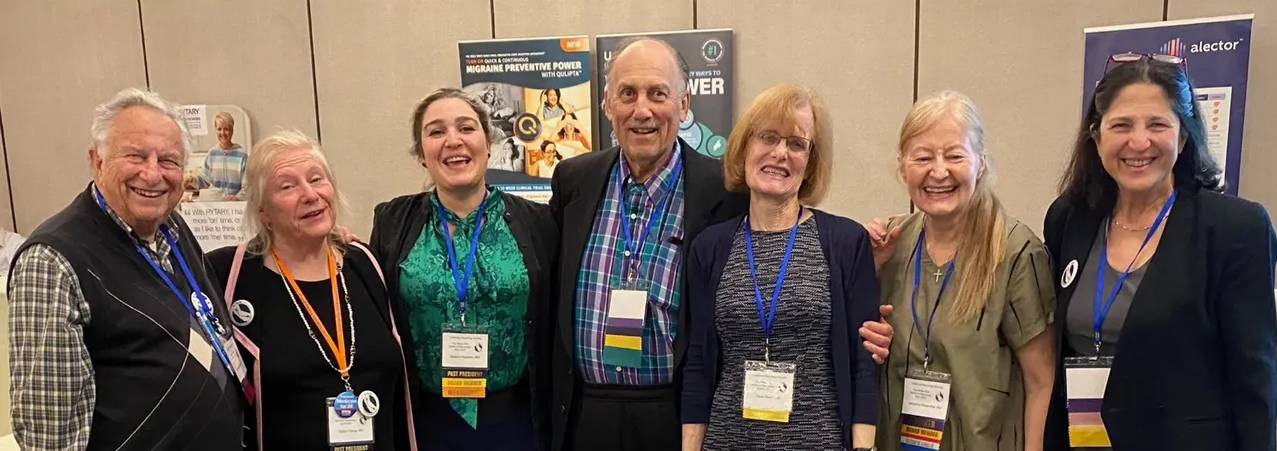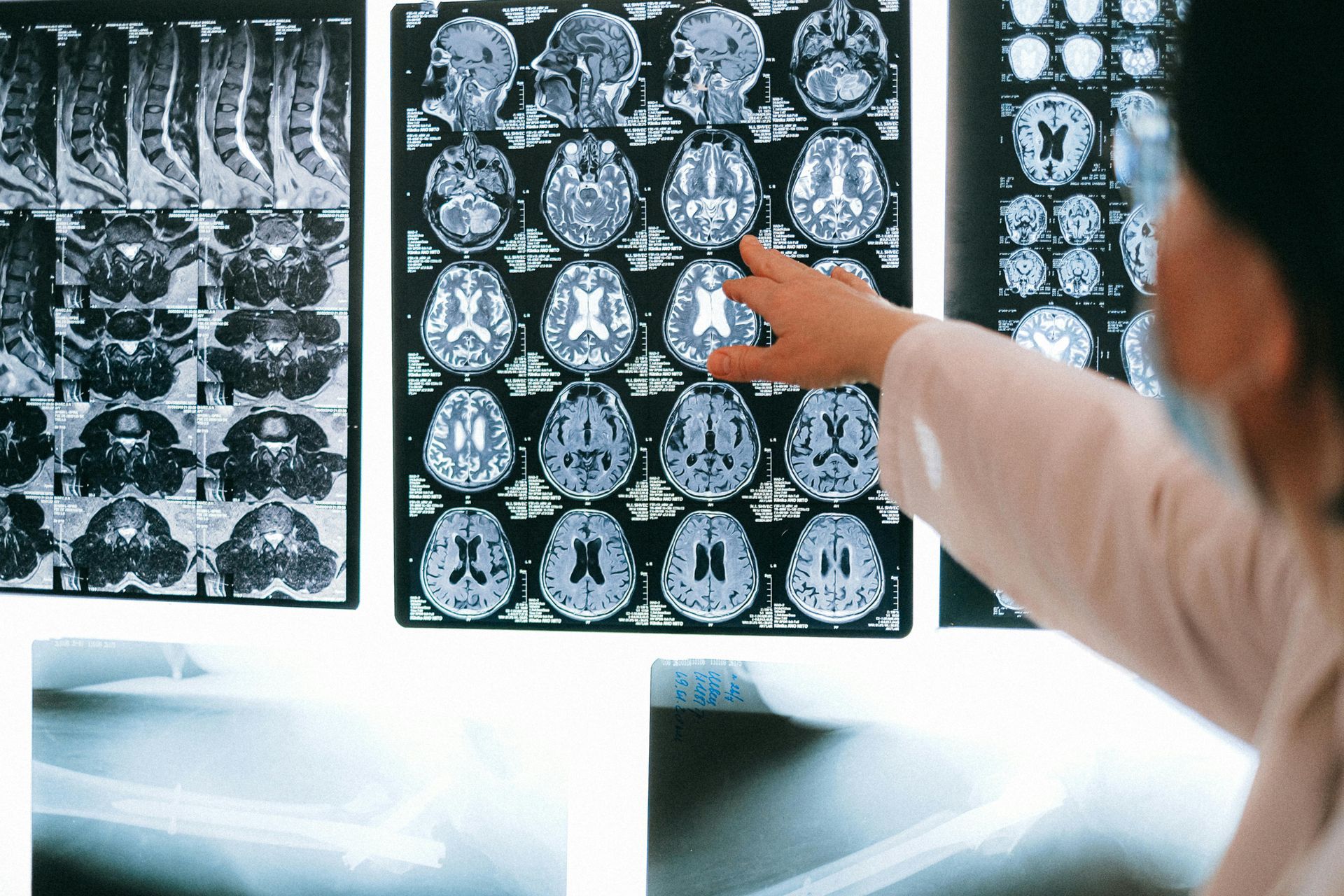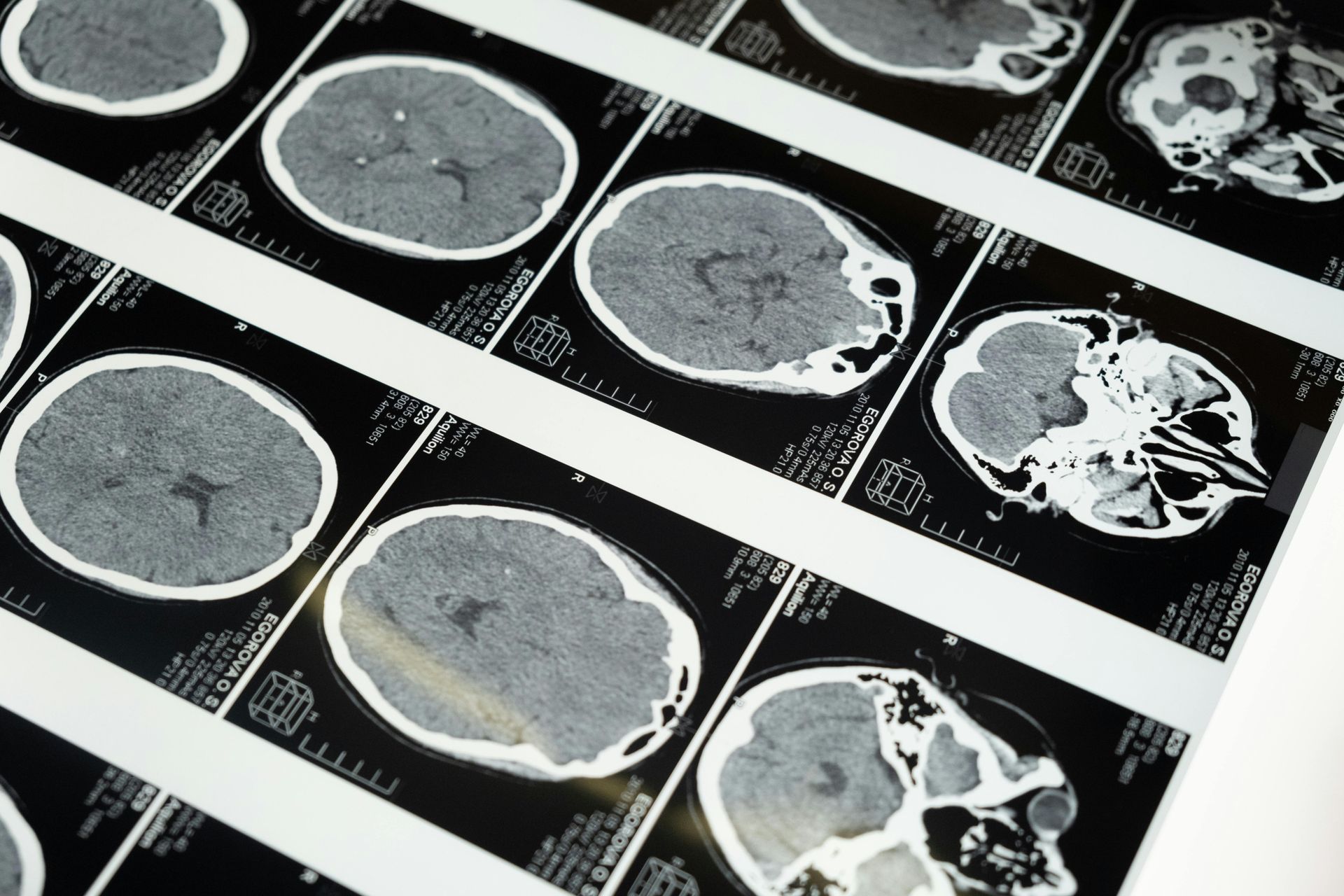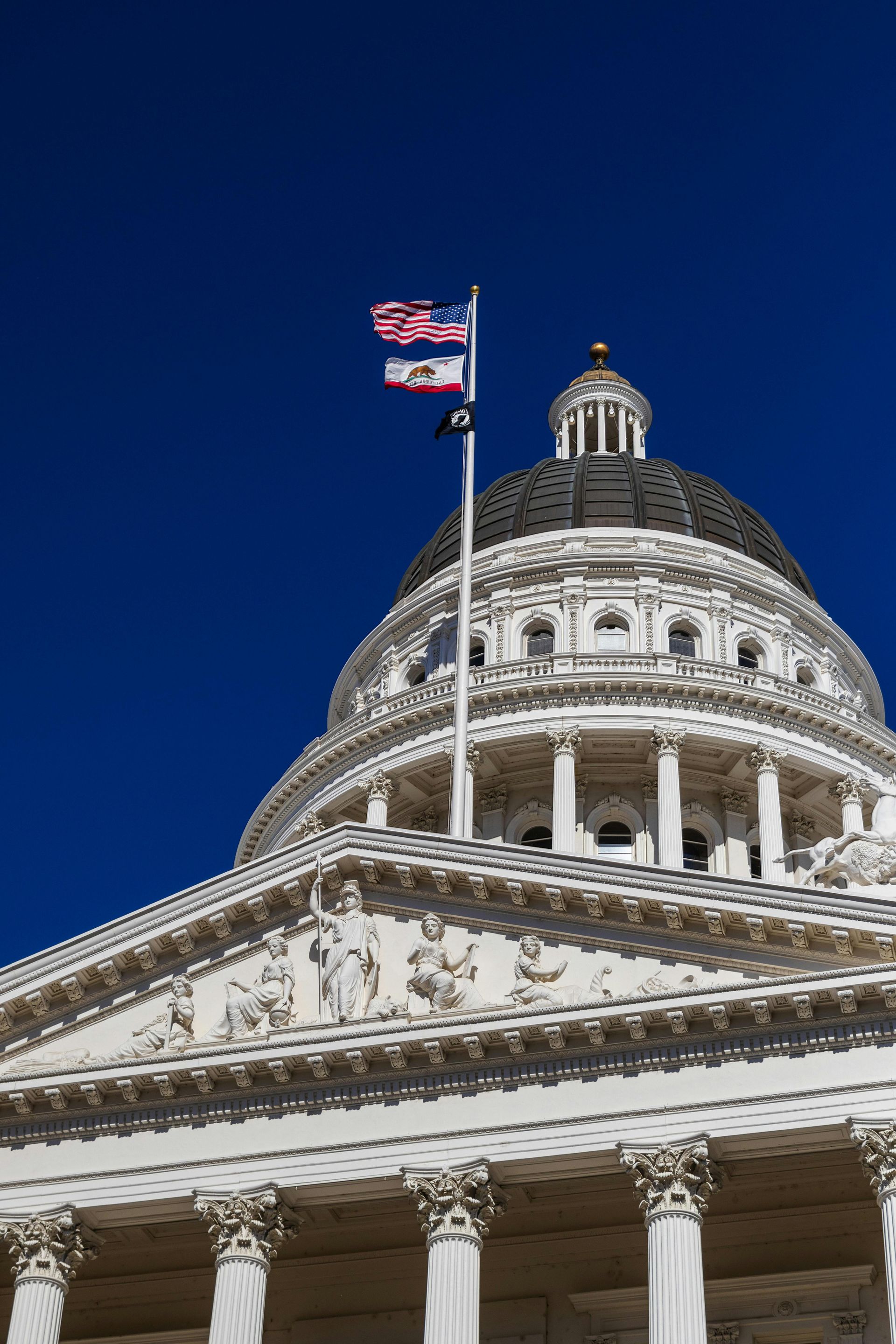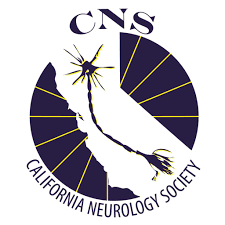CNS Legislative Committee MEETING MINUTES
Minutes of Last Meeting June 19, 2024
The first item on the Agenda
When the HOD comes up in October, is there a focus or a position that we want to have ready for discussion? and hopefully CMA will take on these topics
The Epilepsy and transportation letter from Stella may be a great choice We can discuss these paragraphs and approve them topic by topic
Discussion of
EPILEPSY TRANSPORTATION AVAILABILITY
Epilepsy Transportation Accessibility Act
Section 1.
Epilepsy Transportation Accessibility Act of 2024
Section 2. Statement of Purpose
The purpose of this Act is to ensure that working adults living with epilepsy have affordable and
equitable access to public transportation and private ride services. This is intended to enhance their
mobility, enable full participation in the workforce, and ensure consistent access to medical care.
The Legislature finds that:
a. Epilepsy is a neurological condition that significantly affects various aspects of an individual’s life,
including their ability to engage in day-to-day activities such as driving.
b. Young adults living with epilepsy often face intermittent or permanently limited ability to drive,
necessitating alternative transportation options to support their independence and participation in
society and the workforce.
c. Providing affordable and accessible transportation options is essential to ensuring that these
individuals can maintain employment and access necessary medical care.
Section 3. Definitions
For the purposes of this Act:
1. "Epilepsy" refers to a neurological condition characterized by recurrent, unprovoked seizures that
result from sudden disturbances in the brain’s electrical activity. These seizures can present as
sensory, motor, or autonomic disturbances and may occur with or without impaired consciousness.
Each seizure transiently impairs an individual's control over cognitive and physical functions and
exhibits a consistently recognizable pattern of behavior. This condition reflects an underlying,
intermittent disturbance in brain network functioning that occasionally disrupts normal neural activity.
Young adults living with epilepsy have either intermittent or permanently limited ability to drive.
2. "Working adult" is defined as any individual aged 18 or older who is employed for a minimum of 20
hours per week.
3. "Public transportation" includes buses, trains, subways, and other forms of mass transit provided
by a government or municipal entity.
4. "Private ride services" refer to privately owned transportation services, including but not limited to
taxi cabs, ridesharing companies such as Uber and Lyft.
Section 4. Public Transportation Benefits
1. All working adults diagnosed with epilepsy shall be eligible for a ride pass that allows unlimited use
of public transportation at no cost.
2. These ride passes shall be issued by the appropriate government transportation authority.
Section 5. Private Ride Service Fare Cap
1. A fare cap of $10 per ride shall be applied to all private ride services for eligible working adults
diagnosed with epilepsy.
2. This fare cap applies to rides within the metropolitan area of the individual’s residence and is
limited to 30 rides per month.
Section 6. Funding
Funding for the provisions set forth in Sections 4 and 5 shall be provided through [specify funding
sources, such as federal grants, state budget allocations, etc.].
Section 7. Implementation
1. The [Name of Relevant Government Department] shall be responsible for implementing this Act,
including the distribution of ride passes and coordination with private ride services.
2. This department shall also establish a registration process for eligible individuals to apply for
benefits under this Act.
Section 8. Regulations
The [Name of Relevant Government Department] is authorized to promulgate regulations necessary
to implement and enforce this Act.
Section 9. Reporting
The department shall submit annual reports to [legislative body] on the usage, costs, and
effectiveness of the transportation benefits provided under this Act.
Section 10. Effective Date
This Act shall take effect 90 days after its enactment.
UTILIZATION PA AND DUTY OF CARE
At the last meeting, it seemed that we are in a DAVID and Goliath situation. There is a new study showing that hospitals are losing 20 billion a year due to unfounded denials from prior Auth issues
Do we want to keep going and try to fight fire with fire ie Financial vs Financial ???
Review of our 2 year goal
Utilization Review and Duty of Care
Review of Youth Tackle Football
Steve Cattolica to update
us on the latest with this legislation
Review of Mandatory Reporting the progress of the bill This is a copy of the different aspects
SB 357, as amended, Portantino. Vehicles: physician and surgeon reporting.
Existing law requires a physician and surgeon to report in writing immediately to the local health officer, the name, date of birth, and address of every patient at least 14 years of age or older whom the physician and surgeon has diagnosed as having a disorder characterized by lapses of consciousness. Existing law requires the local health officer to report this information in writing to the Department of Motor Vehicles. Existing law authorizes the department to refuse to issue to, or renew a driver’s license of, a person who has a disorder characterized by lapses of consciousness or who has experienced, within the last 3 years, either a lapse of consciousness or an episode of marked confusion caused by any condition that may bring about recurrent lapses.
This bill would delete these existing provisions on January 1, 2030, and instead would authorize, until January 1, 2029, January 1, 2037, a physician and surgeon to report in writing immediately to the department the name, date of birth, and address of every patient at least 15 years of age, or 14 years of age if the patient has a junior permit, whom the physician and surgeon has diagnosed as having any physical or mental disability, disease, or disorder that could affect the safe operation of a motor vehicle, condition severe enough to be likely to impair the patient’s ability to operate a motor vehicle if a physician and surgeon reasonably and in good faith believes that reporting the patient will serve the public interest. This bill would require a physician and surgeon to report in writing every above-described patient whom the physician and surgeon has diagnosed as having Alzheimer’s disease or a related disorder.
This bill would also require, until January 1, 2029, January 1, 2037, the department, in cooperation with the State Department of Public Health and in consultation with appropriate professional medical organizations, Health, to guide reporting so that diagnosed cases reported are only those where there is reason to believe that the patients’ conditions are likely to impair their ability to operate a motor vehicle. The bill would also exempt, until January 1, 2029, January 1, 2037, a health care provider or health care entity from specified liability, including, among others, civil or criminal liability, for making or not making, or in relation to or arising from making or not making, the report.
This bill would require the Department of Motor Vehicles, by January 1, 2027, 2035, to submit a report to the Legislature evaluating the impact of transitioning to a discretionary reporting system. The bill would require the department’s report, among other things, to compare the number of reports submitted by physicians and surgeons to the department, before and after this transition. The bill would repeal the department’s reporting requirement on January 1, 2029. January 1, 2037.
This bill would would, beginning on January 1, 2029, January 1, 2037, revert to the physician and surgeon reporting requirements in existing law, except the bill would provide a specific definition of “disorders characterized by lapses of consciousness.”
Steve Cattolica can update us about The letter we have sent for CoRTESE
dave Cortese’s bill about Fentanyl OD in Children
Cortese’s Fentanyl Bill SB 908
What does everyone think about the ABMS ???
Colleagues:
I am reaching out to alert you to an unprecedented opportunity for physicians to share how their lives and livelihoods have been impacted by ABMS MOC. It is critical that all physicians comment immediately.
Brief background: Last September, NBPAS formally asked the Federal Trade Commission (FTC) for relief from what it believes is an effort by ABMS and its constituent boards to use their monopoly power to exclude or eliminate competitors from the continuing certification market.
Last week, the FTC, the U.S. Department of Justice (DOJ), and the U.S. Department of Health and Human Services (HHS) jointly requested public input on anticompetitive and monopolistic practices in health care including recertification requirements imposed by certifying bodies.
Below is an example provided by the FTC on their website:
Unnecessary Healthcare Provider Recertification or Accreditation Requirements:
Certifying bodies or accreditation organizations can impose unnecessary requirements on healthcare providers. Unnecessary requirements can raise the costs of practicing medicine. They can also reduce the number of healthcare practitioners participating in the marketplace. These requirements can harm competition and increase the cost of healthcare services.
From the very beginning of NBPAS, many of you have shared your experiences about irrelevant testing, being shut out of insurance plans, denial of employment, excessive costs, and lack of clinical relevance. This is a critical opportunity to have your stories heard.
Please submit your comments (in your own words) directly to the FTC portal here, share this information with every physician that you know, and urge them to participate.
We must speak now or forever hold our MOC.
Last topic with the Supreme court approving
Bump stock for Assault rifles maybe we should be martyrs and take on gun violence, largest cause of neuro death and disease in children
Should we just try to ban assault type weapons and how would that look remembering that Bob Weinmann pointed out that it is not a good idea to have a list of people that don’t have weapons
LEDGE Metting minutes from February 21, 2024
Topic 1
Johanna brought up sending a letter to groups supporting low income housing. If government and tax dollars are set aside for low income housing, wanted to send letters of support for putting the low income housing near public transportation so that our neurologically disabled patients (that usually can’t work) have access to mobility. The group thought too peripheral, not so much about neurology, and recommended that could see if the Epilepsy Society was interested in this issue.
Topic 2
Youth Tackle Football
There was information from Steve Holtz, he had met with an AAN affiliate. Steve sent a summary in the e mail to our CNS group, discussing the concussion issues and included the information from the representative from AAN. The AAN Advocacy committee has a position statement, they feel that with K-12 concussions, that there should be an information sheet that parents have to sign before the parents let kids play contact sports. We can send an official letter to the AAN Advocacy Committee and support this position. Stella also wanted to emphasize CTE in addition to concussions.
Steve Holtz wanted CNS to send a letter to the AAN Advocacy committee, supporting their position and also documenting how California Neurology Society is sponsoring legislation. Steve Holtz pointed out that the best “sound bite” to promote this is the phrase, “KEEP THE KIDS SAFE”.
Jeff Klingman wanted to add concussion and CTE both as well as recommending delaying playing tackle football until age 12. Stella wanted to emphasize the importance of NEW information. As a group it seems that we want to substitute flag football as opposed to stopping football entirely. Did we want to include other contact sports ? in our position statement?????
Stella wanted to have the CNS work with the CMA and also to have the CMA take up a position on Youth Tackle Football
Topic number 3
mandatory reporting. Jeff Klingman pointed out the reporting is voluntary in other states and that is in alignment with the CMA and the AAN already. Schwartzenegger actually vetoed the bill most recently. A colleague of Jeff Klingman cared for a retired AG, and the doctor reported the person even though the patient had not had a seizure for many years, The AG was off driving for 3 months and it was difficult. Also syncope patients may only have a LOC with prolonged standing, so unfortunately license temporarily suspended even though unnecessary.
Jeff was going to write a letter in support of the bill. Johanna will try to get a CHP person at the May meeting to get to know the opposition.
Robyn pointed out that she documents “seizures controlled” or information about the medical status only and lets DMV make an administrative decision about the driver’s license. Jeff pointed out that the medical issues are nuanced and doctors are responsible and can report accordingly.
Stella brought up a resolution of Gun Control. The AAN and the CMA have outdated policies. Stella wanted to work with CMA about it.
Hopefully Stella will post on our website
Steve Holtz pointed out that the AMA is very likely to support legislation about gun violence. The AAN may also take up the position. Stella pointed out that we should emphasize gun violence and spinal cord brain and nerve injuries, that is why our concern is related and in the CNS focus.
Jeff Klingman states that it is always beneficial to support education about the medical aspects.
Topic 4 from the HOD,
At the HOD, there was extensive discussion the medical industry causes 13% (supposedly) of the impetus towards Climate change.
Johanna brought up Solar Panels in the Parking lots for medical clinics. The CMA HOD already took up all the issues on climate change, no need for CNS to take up the cause.
Environmentally sophisticated our fearless treasure, Robyn installed solar panels at her home., after solar panels, Robyn has zero electricity expenses, and occasionally gets reimbursed. So we decided to not take this issue up (as far as our group) since CMA is so involved.
The Steves both said that it was too far off focus for the California Neurology Society, and that we need to focus on more patient centered issues.
M/C is cutting reimbursements 3.7% it has to do with Sequestration due to chaos in Congress
, M/C used to pay 80% and now B/C won’t pay the 20%
Jeff Klingman said to contact our legislators and stop taking insurances if we are not being paid, we have to tell them to contact the legislators. The patients won’t believe us that we are underpaid until we stop seeing patients.
The insurance companies were paid premiums during the pandemic, but not paying for patient visits.
Steve Holtz suggested a meeting about reimbursements.
Next meeting March 20, third Wednesday 7:00 to 8:00 PM
LEDGE Minutes from the meeting January 24, 2024
First, the Discusson was about the Bill AB 734. To do with Concussions in Children
Steve Holtz suggested that we
“ally ourselves with the parents, since they will never object to making the kids safer”
The bill has turned into a “2 year Bill” per Steve Cattolica, as a successor bill evolves during the second year, we will have input, but lay people may perceive some of our ideas as “minutiae” and so we have to be realistic about what will go into the bill. The parents will not listen to excruciating discussions about scientific details
Roger Bertoldi asked if Football had a program like “AYSO SOCCER”? none as far as we know.
Robert Weinman noted that at first the National Football League opposed the bill stating that later in life there would be fewer people wanting to play football. We could state that with the brain protected at a young age, that later people would be in better condition due to reduced injuries early in life, to play football and would increase the number of football players.
Pop Warner is ? ? a local or national organization?
Steve Cattolica noted that in Orange County 1000 kids play “flag” vs 60 playing “tackle”.
Should the new bill focus on “”SAFETY FOR CHILDREN UNDER 12”
or “EDUCATION FOR THE PARENTS”???
The prior bill will be pulled off the table, it has to be rewritten and restarted, McCarty’s people are talking about what the new bill will say? Yes we are discussing and communicating with the sponsors
Stella LeGarda pointed out that rather than shutting down programs and getting hardline about this we can let the programs die by attrition as we focus on education. We need to let people make informed decisions.
Johanna Rosenthal suggested an educational video to show when we talk about the bill. Steve pointed out that we can’t make it for the bill, but we could have it available about our content and education. We can post it on U tube. Steve can contact McCarty’s office about it to coordinate and not intrude, and to work together. We can present a video ?10-20 minutes as a resource e for those in favor of the bill and we can also have another video geared more for the parents to watch before football season.
Johanna was thinking about a video that parents “have to watch and then sign a waiver” before their children play on public grounds. The Pop Warner programs play on School and Park fields, they probably have contracts with the Park Department and the school districts. The new bill could say that the parents have to sign that they have watched an educational video in order for Pop Warner to use Public property, and then the school and park department contracts would have to include that language. It could be argued that society is providing the parks and so society will also have to provide for all the people with frontal lobe injuries that become INCORRIGIBLE
The other idea was to make a 20 minute canned video for McCarty to have where the California Neurology Society actually presents the issues. The video would be for McCarty to use when he presents his information to the public at meetings or Legislative committee meetings. He has the information, but it would be great if he had a good video to use to SELL THE SCIENCE behind the bill. Also it would be good for California Neurology Society to “PUT OUR BRAND” on this information.
Stella is a great Movie Producer and she has a presentation that she already gave at the Hearing on this bill. If there is a video recording from her talk at the hearing, it could be remanufactured into the Official CNS video. Zoltan Mocsary might be a good STAR with the great Accent that will sound scientific and can find some clips on Google
SB357 The Driving and reporting Lapses of Consciousness bill
Per Steve it is a “2 Year Bill” It’s next step is to go through Committee. Per Jeffrey Klingman the only opposition was the CHP the California Highway Patrol and that is why Schwarzeneggar vetoed it. Jeff wants to know about the opposition. Steve Cattolica will contact Cortino’s office to check on it. Jeff feels there is disinformation. Let’s meet with the Highway Patrol We will still be reporting. Per Steve that is an option
Per Steve Cattolica it is on the “Inactive File” Unless the Cortino office takes an action, it may not move ahead.
CAN WE INVITE A REPRESENTATIVE FROM THE CHP TO THE LEDGE session in May? For a discussion???
Duty of Care and SB 636 CORTESE
Per Steve Cattolica, The “Ask Me” folks and staff in the Governor’s Office are meeting in a week or 2. Now ‘THE STICKING POINT IS DATA” that someone can look at and count, that a non California Physician is actually doing the UR.
Steve is trying to get Data,
Robert Weinmann pointed out the BILL can be STARTED by pointing out the SUPREME COURT has already expressed an opinion and why do we need a different approach??
Stella will say that the doctors are “supervised “ by someone already licensed in California
How do we counter the argument when opposing factions do not want the governor to sign the bill ???
Robert Bartoldi took the position that now is the time to start preventing AI from performing “Utilization REVIEW” Stella said let’s keep it simple.
Robyn said “it is not an AI issue”. Robyn said that a patient had to have catheters to void and it was denied, and that has to be reported to the board as malpractice. She had a bad experience with “CARILON” a new division of BC that is doing denials she was unable to obtain a peer to peer, with a neurologist or a medical director, and was only able to speak to a pharmacy tech. It wasn’t a doctor now a PHARMACY TECH is considered a Medical Provider. Robyn testified previously in a lawsuit against BC and they settled for 8 million dollars
After she reminded them of her litigation
(and the 8 million dollars),
a pediatrician called back and approved the prior authorization
Robert Weinmann reviewed the King decision
Johanna Rosenthal pointed out that a safety net hospital paid by County Tax dollars loses money on Workers Compensation Denials. Each hospital probably knows what percentage of their total income is lost to Workers Compensation Denials, we can ask our hospitals to give us financial information about denials.
The reason we want to know about the losses to publicly funded hospitals,
is because the Governor wants to keep everyone happy.
He needs to keep insurance companies happy so that someone provides insurance in California
. He wants to keep the doctors happy.
The insurance companies are selling the idea to the governor that the bill about UR and DUTY of CARE should not pass.
The insurance companies are telling the governor NOT TO SIGN THE BILL, because it will cost more money to the public when the public pays for insurance. So if we can point out the the bill will save money for the public, because the hospitals will be paid so the taxpayers don’t have to pay for the denials, then the Governor has an argument and CAN push back with the insurance companies.
Jeff Klingman wants to take on all the denials in W/C but also to take up the issues with all UR.
Robyn reviewed a case that was litigated. GO Robyn please write up what happened and what u did and let’s put it on our WEBSITE.
Steve is meeting with the GUV
Steve Cattolica had the last word.
Steve Cattolica said to use
the Department of Managed Care
The Department of Managed Care will help
it will take on single cases.
The data will come from small sources.
The LEDGE Is on the EDGE !!!!!l
All these issues ! !!!!!!
Johanna is using INSTAGRAM SPEAK
and trying to “GLAM UP our BRAND”
Wednesday Next meeting February 21, 2024
GO STEVE with the GUV
our next meeting will be on Wednesday February 21, 2024
7 to 8:00
prepared by Dr Johanna Rosenthal
--------
LEDGE Meeting Minutes 12/20/2023
1.Presence roll call: Steve C, Steve H, Jeff K, Bob W, Robyn Y, Stella L
2.Minutes of last meeting -approved
3.Duty of Care/Utilization Review
Steve C: Steve shared current status in SAC and recommends to put this topic as a LEDGE concern “In wait mode”
Licensure: (Bob): UR docs are exempt from duty of care mandate of CA Board
Jeff: standard of care incommunity/out of state NOT in community
Stella: start collecting data/examples of UR failures LIVE as it happens
4.Tackle FootballSteve C: stated next hearing is set for 10th Jan 9 AM room 127 in the Capitol to vote on whether to move the Bill forward
Steve H: Will send Stella email with specific patient example Jan 9th
– Steve C having his shoulder replaced
Hearing preparation:
a.start with story-case
b.Follow up with statistics/new data
c.Why young brains are different
Steve H: Death from second impacts: systemic reaction augmented in younger brains/immune system, shuts system down
d.human perspective important Think as a parent
5.Dr Rosenthal’s letter – Table until next meeting
6.Gun position statement – Stella and Steve C will work to draft a Resolution to include:
Common sense Lifelong injuries (not just deaths) Impacts medical issues.
AR 15/magazine capabilities Increase cost of medicine
Disability Increases tax burden on the State Young, uninsured or lose it with disability
No CMA action for a while
Shot in head or spinal cord** greater impact than shot in the stomach or leg
Mental health consequences
7.Next meeting: Wednesday January 24, 2024 at 7 PM8.Meeting adjourned 7:00 PM
Prepared by Stella Legarda, MD
------
Minutes from CNS Legislative Committee Meeting July 12, 2023
Bob Weinmann and Steve Cattolica state that we are not getting discussion pieces about the legislation out to the body of Neurologists on our mailing list,
Whenever we do email group mailings to all the California Neurologists, we can send the minutes of our Legislative meeting and then say if anyone needs more information,
e mail to Johanna Rosenthal MD or Steve Cattolica about the Legislation
at cnslegcomte@gmail.com
SB 636 had passed the Assembly Insurance Committee
Was in the Assembly Appropriations Committee
not expecting to fail since it had no effect on public funds
Planned to go through the Senate Committee’s in late Aug or early September not expected to have unusual difficulties.
Per Steve Cattolica the California State Legislature went on Summer Holiday Break July 14, 2023 and not scheduled to return until August 14, 2023. One month to complete all voting bySeptember 15, 2023
, Governor has only 1 month to sign or benign neglect veto.
Dr. Weinman thought we needed representation in Sacramento instead of recruiting our members that live far away, Stella suggested getting CNS members that live in Sacramento to be there for the committee and legislative meetings where it would be good to have additional voices, (besides Steve Cattolica)
Steve pointed out that we can contact the local offices because the legislators will be in their own offices in the local areas, during August. So instead of talking to a legislator when they are in Sacramento, knock on the door when they are down the block.
SB 357 Passing Assembly Judiciary and Transport, expected to pass Appropriations
SB 525 Hospital minimum wage requirement $21x one year then $25
Passed Assembly Labor sent to Appropriations expected similar path through the Senate
Steve Holtz pointed out the the AAN sends out the Capitol Report about what the AAN is doing as far as
National Legislation to advocate for Neurologists, and we can do that for CNS
What is the best format. Seems to be advisable to send with the constant e mails
as well as to post the latest minutes on the CNS link to advocacy that Stella started previously
SB 1278 is now a 2-year bill, about Work Comp MPN
SB 652 (Umberg) special language for Expert Witnesses to use
Signed by the Gov June of 2023 and in force as of 01-01-24
Roger Bertoli joined the Legislative meeting and expressed his interest. He is from Los Angeles.
Steve Cattolica came up with the idea of being able to go on
the CNS website>>>>>then click on the link to
the Advocacy Website/LEDGE>>>>>
then click on the link that has a
pop up connection to the site where you put in your ZIPCODE and
out pops the name of your California STATE Assembly Person
and the name of your California STATE Senator
and after reading all your EEG’s, signing charts, and continuing Education you can make an appointment with your local legislators, and let them know that you are a “go to” person about the CNS and legislation that we are interested in.
this is your opportunity to GO VISIT
AB 796 increasing scope of Athletic trainers 2 year bill
AB784 2 year bill
AB582 2 year bill
SB 598 Important for our group. This would allow doctors that have obtained multiple approved prior authorizations from the insurance companies to be allowed to order testing and treatment (in the same pattern) without having to get a PA
AB815 This is one that needs to be discussed at the next meeting.
It sets up a parallel credentialing process Existing law requires requirements for provider credentialing by a health care service plan or health insurer.
We might want to use this bill as ammunition for Cortese’s bill, What is the point of setting up more credentialing if doctors that don’t even have a license in California can practice medicine here.
We could point out that someone somewhere thinks it is good to have credentialling so why not make sure that doctors must have a CALIFORNIA license.
Also, these other boards may use incorrect criteria, because the entities will be controlling the process, such as …..don’t give the doctor a good rating if they put sick patients in the hospital (cheaper as outpatient)
AB101 and SB 101 We are counting on Steve Cattolica that there are no hidden agenda bills in the budget
AB 470 is another bill that we can use as a weapon to fight for DUTY OF Care. It is trying to have doctors improve their communication skills
Here is another bill trying to improve doctors by more continuing education, but we can point out that doctors providing, supervising and reviewing treatment in California must be licensed in California and that the Medical Board of California already has Continuing Medical Education protocols in place and that there are doctors coming into the state that are not subject to the Education requirements.
Does this group even know about the KING trial? Or the judges opinion, are they good allies?
AB 931 has something to do with Physical therapy authorizations will put on agenda for discussion next meeting
AB 616 Medical group financial transparency Act also requires some in depth analysis (Rodriguez) will put on the next meeting agenda
Prepared by Johanna Rosenthal MD
